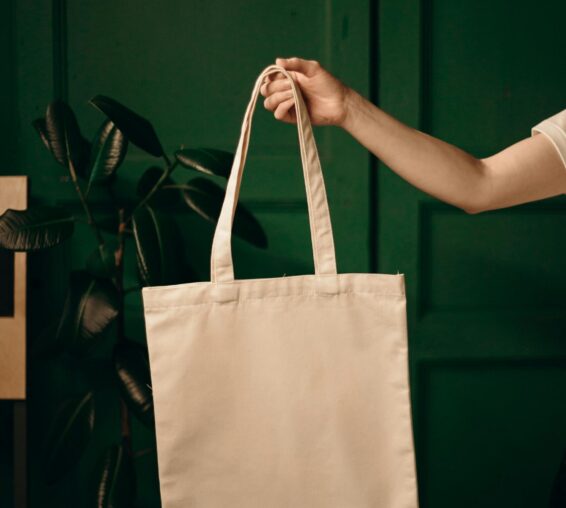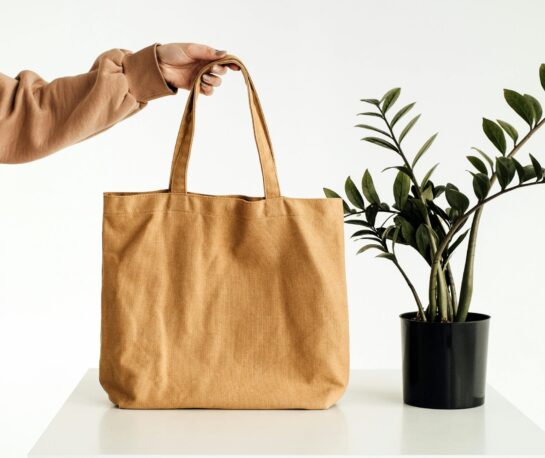Welcome to GreenPath
A PLACE TO SHOP SMART, LIVE GREEN
Choose sustainability with our eco-friendly cotton bags — stylish, reusable, and planet-friendly.

GREENPATH COMMUNITY
United for a Greener Tomorrow
Together, we’re reducing plastic waste and promoting eco-conscious choices. Every cotton bag is a step toward a cleaner, healthier planet.
25 questions with detailed answers about Cotton Bags.
1. What is a cotton bag?
A cotton bag is a reusable and eco-friendly bag made from natural cotton fibers. Unlike plastic bags, which are thrown away after one use, cotton bags can last for years. They are often designed as totes, drawstring bags, or canvas shopping bags. People use them for groceries, travel, office, gym, and even as fashion accessories. They’re simple, practical, and align perfectly with a sustainable lifestyle. .
2. Why are cotton bags eco-friendly?
Cotton bags are considered eco-friendly because they reduce plastic waste, which is one of the biggest environmental problems today. They are biodegradable, meaning they break down naturally without leaving harmful residues like microplastics. Cotton is a renewable resource, and organic cotton farming avoids pesticides and chemicals. By using one cotton bag instead of hundreds of disposable plastic bags, you actively lower your carbon footprint. In short, cotton bags are a small switch with a big impact on the planet.
3. Are cotton bags strong enough?
Yes . Cotton bags are much stronger than plastic bags and can carry heavier loads without tearing. They are ideal for groceries, books, or even laptops. The strength of a cotton bag depends on the fabric thickness – thin cotton is good for light use, while canvas cotton is extremely durable for heavy-duty carrying. They last for years if properly maintained. So instead of buying dozens of weak plastic bags, one cotton bag can serve multiple purposes again and again.
4. How long does a cotton bag last?
A cotton bag can last anywhere from 2 to 5 years or more, depending on how often it’s used and how well it’s cared for. Unlike plastic bags that break after one or two uses, cotton bags can withstand daily wear and tear. If you wash them regularly and avoid overloading them, they’ll stay strong for a very long time. Some canvas cotton bags are so durable that they outlast most fashion handbags. This makes them both an economical and sustainable choice.
5. Why should I switch to cotton bags?
Switching to cotton bags is one of the simplest ways to reduce your environmental footprint. Every year, billions of plastic bags end up in landfills and oceans, harming animals and ecosystems. Cotton bags replace these plastics with a natural, reusable, and biodegradable option. They are stylish, practical, and can be used in all aspects of daily life. On top of that, they help spread awareness—carrying a cotton bag shows others you care about the planet, inspiring them to do the same.
6. Can cotton bags be washed easily?
Yes, cotton bags are very easy to clean. Unlike plastic bags that trap dirt and bacteria, cotton bags can be washed in a washing machine or by hand. Regular washing keeps them fresh and hygienic, especially after carrying groceries. It’s best to wash with cold water to prevent shrinking and air dry them for longer life. This makes them a healthier option for both your family and the environment.
7. Do cotton bags shrink after washing?
Sometimes, cotton bags may shrink slightly, especially if washed in hot water. This is because cotton is a natural fiber that reacts to heat. To prevent shrinkage, use cold water and gentle detergents. Air drying is recommended instead of machine drying. With the right care, your cotton bag will keep its original size and shape for years.
8. Are cotton bags safe for carrying food?
Yes . Cotton bags are non-toxic and chemical-free, making them safe for carrying groceries, fruits, and vegetables. Unlike plastic bags, which may leach harmful chemicals, cotton bags are made from natural fibers. They also allow air circulation, which keeps food fresh for longer. Many people prefer cotton bags for food storage because they are hygienic, reusable, and healthier.
9. Are cotton bags waterproof?
By default, cotton bags are not waterproof, since cotton is a natural absorbent material. However, some bags are treated with eco-friendly water-resistant coatings or blended with other fabrics. Even without waterproofing, cotton bags dry quickly and can be washed easily if they get wet. For groceries or liquids, you can use a waterproof lining inside your cotton bag.
10. Can cotton bags be used for branding?
Absolutely. Cotton bags are one of the most popular promotional products for businesses. Companies print their logos, messages, or designs on them because people reuse them for years. This means long-term visibility for the brand, unlike paper flyers or plastic bags that are thrown away quickly. Plus, giving away eco-friendly cotton bags shows a company’s commitment to sustainability, which customers appreciate.
11. Are cotton bags more sustainable than paper bags?
Yes. While paper bags are biodegradable, they are weak and often single-use. Cotton bags, on the other hand, are strong, reusable, and last for years. Paper production also involves cutting down trees, while cotton is a renewable crop. Though cotton farming requires water, the reusability factor makes cotton bags much more sustainable in the long run.
12. What styles of cotton bags are available?
Cotton bags come in many styles to suit different needs:
Tote Bags for shopping or casual use.
Canvas Bags for heavy-duty carrying.
Drawstring Bags for gyms or kids.
Foldable Cotton Bags for travel.
Custom Printed Bags for promotions.
This makes them versatile for personal, business, and fashion purposes.
13. Do cotton bags come in different colors and designs?
Yes .Cotton bags are not limited to plain beige or white. They are available in vibrant colors, eco-friendly prints, and custom designs. Some are hand-painted, while others are professionally screen-printed. Businesses often use them as creative merchandise, while individuals enjoy them as stylish accessories. This versatility is why cotton bags are both practical and fashionable.
14. How do cotton bags reduce plastic waste?
Every cotton bag has the potential to replace hundreds of plastic bags over its lifetime. Since billions of plastic bags are thrown away every year, switching to cotton significantly lowers waste. Plastic takes centuries to break down, while cotton naturally decomposes. By reusing a cotton bag daily, you stop hundreds of plastics from entering landfills and oceans.
15. Do cotton bags release microplastics?
No. Unlike synthetic fabrics such as polyester, cotton bags are made of 100% natural fibers. This means they don’t release harmful microplastics into water or soil when washed or discarded. Instead, they return to nature safely. This makes cotton bags a much healthier option for the environment.
16. Can cotton bags be folded and carried easily?
Yes . Cotton bags are lightweight and foldable, which makes them very convenient. You can easily fold one and keep it in your purse, backpack, or even pocket. This means you always have a reusable bag on hand, avoiding the need to buy plastic bags at stores. Their portability makes them a smart everyday choice.
17. Are cotton bags suitable for kids?
Yes. Cotton bags are safe and lightweight, making them perfect for children. Kids can use them as school bags, lunch bags, or for carrying sports gear. They also come in fun prints and smaller sizes for kids. Teaching children to use cotton bags helps them understand sustainability from a young age.
18. How are cotton bags made?
Cotton bags are made from woven cotton fabric, which comes from cotton plants. The fibers are spun into yarn, woven into fabric, and then cut and stitched into bags. Many are handmade by artisans, while others are factory-produced. Organic cotton bags are made without chemicals or pesticides, making them even more eco-friendly.
19. Can cotton bags be recycled?
Yes. Old or worn-out cotton bags can be recycled into new textile products, such as cleaning cloths, rugs, or paper. Recycling cotton reduces waste and gives the fibers a second life. Composting is another option if the bag is 100% pure cotton without synthetic blends.
20. How do cotton bags save money?
Although cotton bags may cost slightly more upfront, they save money in the long run. A single bag can be used hundreds of times, reducing the need to buy plastic or paper bags again and again. Some stores even give discounts to customers who bring their own bags. Over time, this makes cotton bags a cost-effective investment.
21. Are cotton bags safe for the environment after disposal?
Yes .Unlike plastic bags that take centuries to break down and release toxins, cotton bags are biodegradable and compostable. When disposed of, they return to the soil naturally without leaving harmful residues. This makes them a zero-waste alternative to synthetic bags.
22. Can cotton bags carry heavy items?
Yes. Cotton bags are very strong and reliable. Depending on the thickness, they can carry groceries, laptops, or even multiple books without tearing. Canvas cotton bags are especially sturdy and designed for heavy loads. This durability makes them far superior to disposable bags.
23. Are cotton bags fashionable?
Yes . Cotton bags have become a fashion trend worldwide. Many people use them as everyday accessories, pairing them with casual or modern outfits. They often feature creative prints, slogans, or eco-friendly designs. Cotton tote bags, in particular, are popular in fashion markets and are used by celebrities and eco-conscious shoppers.
24. Are cotton bags suitable for corporate gifts?
Yes. Many companies give cotton bags as corporate gifts or promotional items. They are practical, eco-friendly, and customizable with company branding. Employees, clients, and customers can reuse them, ensuring long-term brand visibility. Using cotton bags for gifting also enhances a company’s image as socially responsible.
25. How do cotton bags support a sustainable lifestyle?
Cotton bags encourage people to make eco-conscious choices in their daily lives. They reduce dependency on plastics, promote reuse, and spread awareness about sustainability. Using cotton bags is a small step that leads to bigger lifestyle changes, such as choosing reusable bottles, eco-friendly packaging, and greener habits overall. In short, they are a gateway to a more sustainable world.
OUR PRODUCTS & SERVICES
Sustainable Choices for Everyday Living
ABOUT GREENPATH
Discover the Heart of Sustainability
At GreenPath, we are committed to replacing single-use plastics with eco-friendly alternatives. Our cotton bags are reusable, biodegradable, and designed to inspire mindful living.

Plastic Waste Reduction
Over 5 trillion plastic bags are used globally every year, and most end up in landfills or oceans.
This simple switch helps reduce plastic waste that chokes marine life, pollutes rivers, and damages ecosystems.
Decomposition & Biodegradability
Plastic bags take 500–1,000 years to decompose, releasing toxic microplastics into the soil and water.
Cotton bags are
biodegradable and compostable, breaking down safely within months to a few years.
Reusable Lifestyle
A cotton bag can be reused hundreds of times, lowering the carbon footprint compared to single-use bags.
The more you reuse it, the greener it becomes. One cotton bag used daily can save hundreds of plastic bags in a single year.
Sustainable Production
Cotton is a renewable resource. Unlike petroleum-based plastic, it comes from plants that can be regrown.
Organic cotton farming uses less chemical input, making it healthier for soil and farmers
Support for Zero-Waste Goals
Cotton bags align with zero-waste and eco-friendly living.
They encourage consumers to adopt other sustainable habits, such as reusable bottles, eco-packaging, and greener shopping practices
Customized Cotton Bags
Printed or embroidered with logos, slogans, or designs, making them excellent for business promotions, events, or giveaways.
Available in various sizes, colors, and shapes to suit business or personal branding needs.
Faith in Every Word
Key Features of Eco-Friendly Cups
God’s Word guides our steps and strengthens our spirit.Every verse reminds us of His unchanging truth.

Sustainable Materials
Made from bamboo, stainless steel, glass, silicone, ceramic, or compostable plant fibers.
Unlike plastic, these materials are renewable, non-toxic, and safe for both you and the environment.
Each material has unique benefits: bamboo is lightweight, stainless steel is durable, and glass is elegant.

Reusable & Long-Lasting
Designed to be used hundreds of times, replacing countless single-use cups.
High-quality construction ensures durability even with daily use.
Some cups (like stainless steel or ceramic) can last for years, making them a smart investment.
STAY CONNECTED, STAY GREEN
